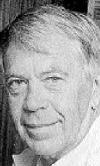 |
The Weatherman Guy
Sphere, London, 1976
The blurb on the back:
The most devastating conspiracy since the gunpowder plot is dynamite in the hands of maniac killers.
'Burmeister's most exciting so far' - Manchester Evening News
The Weathermen (later known as the Weather Underground) were the most extreme splinter group to emerge from the left organization SDS (Students for a Democratic Society) in the turmoil of late-1960s America. With the shadow of Vietnam hanging over the whole country, a few of the most radical student activists decided that the struggle to change society needed kicking up a notch or two, and the Weathermen were born as the terrorist wing of the counter-culture, more interested in bombing things than in staging mass demonstrations. The ideology was as confused as you'd expect from a collection of wealthy white American college kids who'd half-digested the orthodoxies of Marcuse & Marx and who'd read a bit too much about the Black Panthers for their own good. But for a moment, it looked like the myth of the Weathermen - action regardless of consequence - might have some potency. Then came the own goal of March 1970, when a bomb factory in the basement of an upmarket New York town house exploded, killing three of the key figures, and establishing a reputation for incompetent bungling. Which is exactly the wrong image for would-be fearsome terrorists. Two women survived and were seen leaving the house in the aftermath of the explosion, before they promptly disappeared into the underground. Thereafter, the Weathermen never really cut the mustard again. The SLA temporarily seized the spotlight to become the most visible American violent activists, before - in the 1980s - the focus of US terrorism shifted firmly back to the right-wing nutters who populate the twilight worlds of Christian fundamentalism and the millennial militias. This novel starts with the New York self-immolation and posits the existence of a third survivor of the explosion. Karen Einsbach does a runner over the border to Canada, where she is recruited a couple of years later by a re-formed group of Weather types, who have an intriguing proposition. It turns out that over in dear old Blighty a brilliant young post-graduate student was writing a history of the Houses of Parliament for his Masters thesis when he stumbled across a diary revealing the existence of a Fenian plot to blow up Parliament in the 1880s. The plan - to dig a tunnel from the cellar of a nearby pub under Westminster, and to fill it with vast quantities of dynamite - was implemented, but then aborted shortly before the fuse was lit. Untouched for ninety years, the tunnel and the dynamite are still there, and the student invites the Weathermen to complete the work.
Well, I don't want to sound too picky or demanding, but isn't it part of the job of the novelist to make an imaginative leap into the mind of his or her characters? But the lack of comprehension is a direct expression of Burmeister's failure to grasp the psychology of the people he's writing about. It's not that he tries and fails - he simply doesn't attempt it, preferring to accept the penalty of three faults for a refusal. There's a half-attempted depiction of Einsbach's parents being members of the Communist Party who fell foul of the McCarthy purges, but even Burmeister knows this doesn't really work, and he doesn't pursue it. In other words, what we've got here is a typical 1970 expression of horror at the degeneration of politics and the increasing destabilization of society by would-be revolutionaries. Not dissimilar to The Chilian Club and its ilk. Right-wing paranoia, of course, but good fun with it. And, of course, a fantastic opening sentence.  ENTERTAINMENT VALUE: 4/5 HIPNESS QUOTIENT: 2/5  Robert Byrne, The Tunnel home |

 Burmeister was a South African thriller writer, with thirteen novels to his name in the 1960s and '70s, of which the most successful was Running Scared, filmed in 1977 with Anthony Quinn as Tigers Don't Cry. (He died in 2001, accidentally shooting himself whilst investigating strange noises outside his house in the middle of the night.) And it turns out that he's not a bad story-teller at all. There's a real speed and tension to the plotting that keeps you involved for the entirety. Unfortunately, the same can't be said of his characterizations. Look, here's a couple of pigs - sorry, police officers - discussing Ms Einsbach:
Burmeister was a South African thriller writer, with thirteen novels to his name in the 1960s and '70s, of which the most successful was Running Scared, filmed in 1977 with Anthony Quinn as Tigers Don't Cry. (He died in 2001, accidentally shooting himself whilst investigating strange noises outside his house in the middle of the night.) And it turns out that he's not a bad story-teller at all. There's a real speed and tension to the plotting that keeps you involved for the entirety. Unfortunately, the same can't be said of his characterizations. Look, here's a couple of pigs - sorry, police officers - discussing Ms Einsbach: